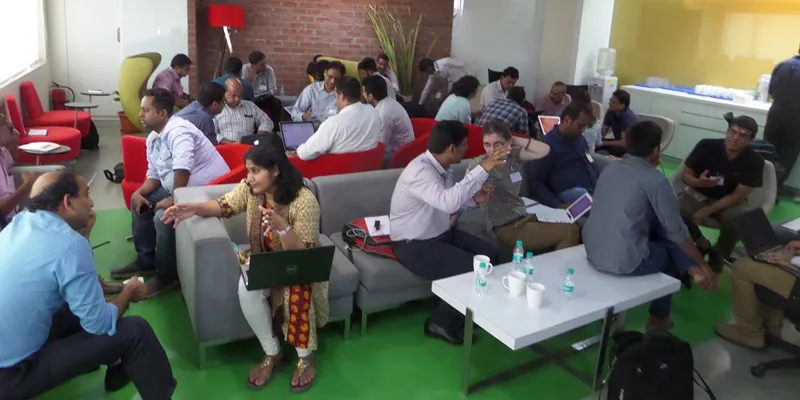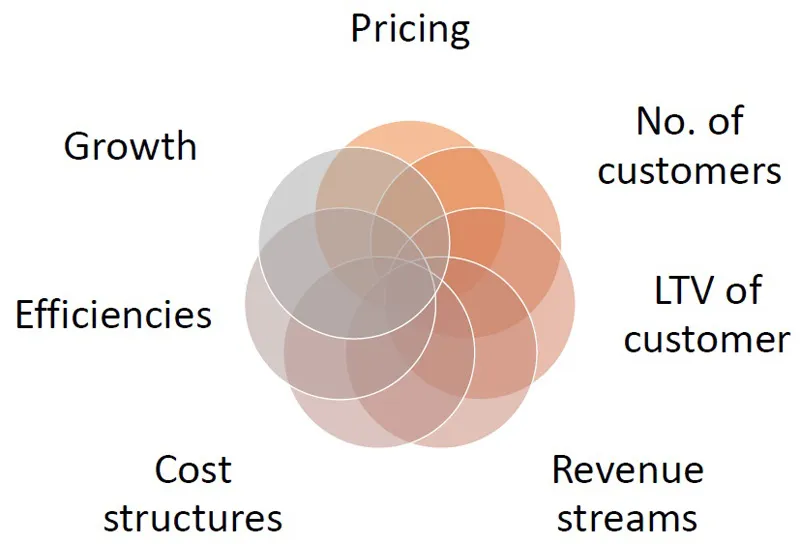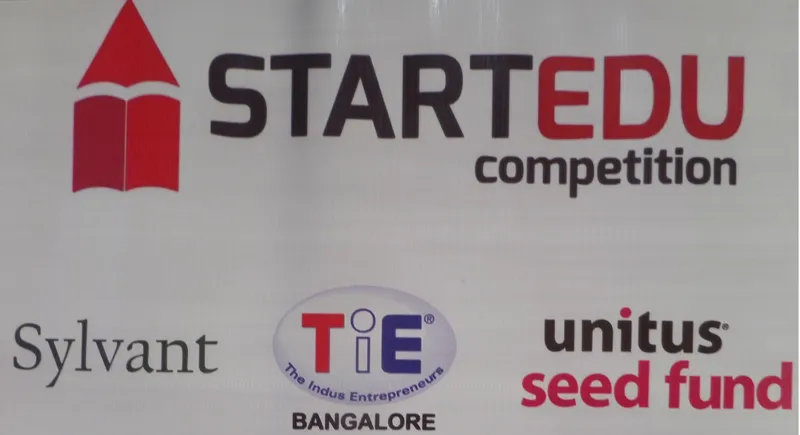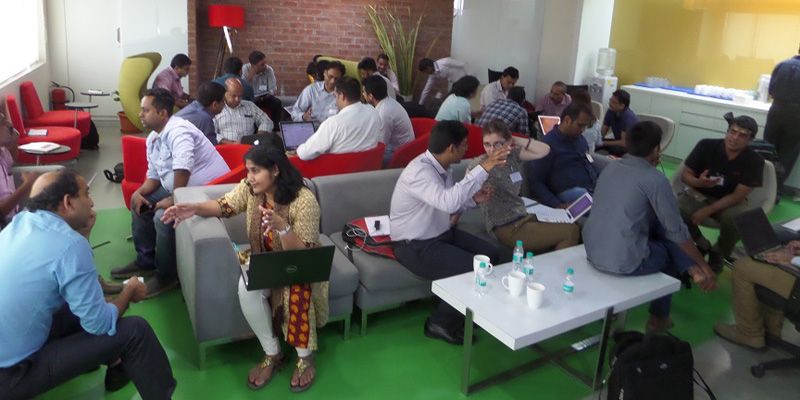How to launch your edtech startup: tips and roadmaps from StartEdu 2016
The education space in India attracted an estimated 40 investments across deal sizes and stages in 2015, and continues to draw a wide range of creative minds and committed entrepreneurs. To promote more such initiatives, experts from edtech advisory firm Sylvant and investors from Unitus Seed Fund offered useful tips on market assessment, product-market fit strategies and pitching techniques to two dozen startups at the Bengaluru edition of StartEdu 2016 (see my earlier coverage of the first and second EduThon 2015 events).

StartEdu 2016
A joint initiative by Unitus Seed Fund and Sylvant, StartEdu is a nationwide programme to identify, incubate and invest in early-stage education and edtech startups. Launched in December 2014, the initiative has had three editions with participation from over 250 Indian companies.
Past winners include LabInApp, an edtech startup for secondary school science learning through 3D virtual graphics. LabInApp, based in Hubli, also received a seed-round investment from Unitus.
The fourth edition of StartEdu includes two-day bootcamps in five cities across India, from which 20 companies will be handpicked. They will get access to mentorship on growth strategies from industry players such as S.Chand Publishers, Pearson Affordable Learning Fund and Integra. The final winners can also pitch for seed-round investments from Unitus of up to Rs 3 crore.
The first bootcamp of 2016, held in Hyderabad in May, saw over 30 participating startups, and another two dozen signed up for the Bengaluru edition (with TiE Bangalore as a partner). The bootcamp was structured around questions of problem definition, solutioning and scaling, along with talks, experience sharing sessions, peer learning through group discussions, and personal reflections.
The Bengaluru participants included startups from the K-12, higher education, vocational training and corporate training sectors. Their offerings include personalised assessments, VR content, parent engagement, gamification, soft skills development, digital libraries, student networking, test preparation, procurement marketplaces, learning analytics, language tools, internship location, and real-time scenario engagement.

Assessment and actions: 10 key questions
Unitus and Sylvant offer the following key clusters of questions that all startups need to address, to assess how well they are prepared for the roller-coaster ride of edtech entrepreneurship. Interestingly, many startups feel that ‘all is well’ before they look at these questions, but poring through them in detail may discourage some of them. The answer lies in between – the passion should certainly be nurtured, but also tempered with realistic assessment.
- Problem identification: The first step for aspiring ‘edupreneurs’ is to clearly identify the problem they are trying to solve. How big is it? Who does it affect the most? Founders need to immerse in the problem and show that they really understand it, along with the challenges and opportunities.
- Consumer vs. customer: The customer is the person or organisation who will pay for your product/service – but who is the end-user? How will they benefit from your solution? Founders need to develop an empathy with the end-user and connect with their aspirations and needs – these users could be students, teachers, or even parents.
- Stakeholder mapping: In addition to user, consumer and customer, who are the other influencers in the picture? This involves broader ecosystem mapping to better understand the product-research and decision-making cycles for the stakeholders, for example, the role of school trustees and textbook publishers.
- Reaching influencers: How will you reach the influencers? What contacts do you have, eg. through alumni networks, industry associations, and tuition centres? This will call for extensive networking with the broader players in the ecosystem.
- Market insights: How will you go beyond personal anecdotes to real market insights? How are you making sure that the assumptions for the target domain are valid and are not force-fitted from another sector? This calls for primary and secondary research, and should go beyond scraping the web for generic market research reports, for example, with data sets gathered from surveys (some of which can be outsourced).
- Market size: What quantitative measures do you have for market size? What are the qualitative factors underlying these market dynamics? What are your estimates for TAM (Total Addressable Market), SAM (Segmented Addressable Market), and SOM (Serviceable Obtainable Market)? This should help estimate early-stage and scale-stage scope for the startup.
- Competitive positioning: Who are your direct competitors today? As markets and regulation change, who could be your indirect and direct competitors tomorrow? It seems common for many founders to say that they have no competitors, when actually other players could easily extend into this space – hence the importance of a ‘moat’ strategy.
- Solution assessment: How do you know your proposed solution solves the problem? How does your solution differ from others? Is it nice to have, important, or critical for your stakeholders? Founders should have a clear understanding of how they would improve the existing solution, for example, based on the needs of private schools or BoP (bottom of the pyramid) schools.
- Unit economics: What are your pricing and financing models? What are the direct and indirect revenue streams? How do they balance out with your cost structure in terms of development, delivery and marketing? These issues are even more important given the current ‘belt tightening’ phase in the Indian startup ecosystem.
- Scaling: How will you expand in terms of customer base, revenues, products, profits, headcount and geographic presence? What drive and strategy will your leadership bring to the table? Who are your partners in this scale stage, and what’s in it for them? This is the proverbial ‘wall’ that many edtech startups hit after roping in their first dozen or so institutional customers.
At the bootcamp, identification of the problem and the customer turned out to be the simplest and the most profound question that most entrepreneurs struggled to answer, according to Gaurav Singh, Co-founder of Sylvant. This is because of multiple stakeholders involved in key decisions of the sales process in the education sector. “In our view, we believe that if this question is comprehensively addressed, it sets the foundation for solutions and scale,” said Gaurav.
It is important for founders to always stay focussed on the problem they are trying to solve, and not get wedded to ‘the perfect solution’ since the needs and technologies may change, according to Madan Padaki, Co-founder of Head Held High Foundation.
Despite tough challenges, the bootcamp participants demonstrated their passion for building education companies and bringing in business validation, said Srikrishna Ramamoorthy, partner at Unitus Seed Fund. Full details of the winning startups will be revealed after the five-city series of bootcamps is completed. The next meetups will be held in Chennai, Mumbai and Delhi in June.
Some of the market issues discussed above can be handled by bootstrapped startups, but rapid launch and scale may require the support of investors who make their evaluations based on a range of success factors. Enter the startup pitch and storytelling techniques – more on that in our next article on StartEdu 2016.








